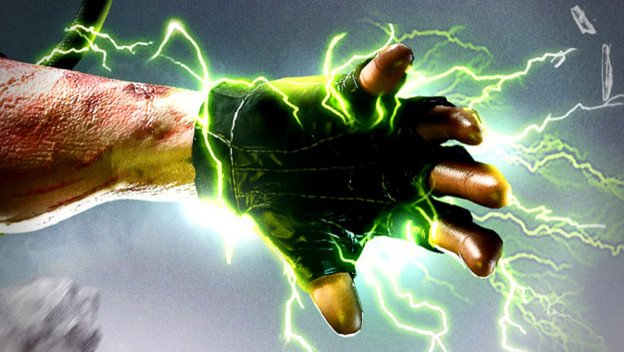Something interesting happened on August 8, 2017. Two games were released, both with a lot of buzz surrounding them. Hellblade from Ninja Theory, an action game based on a person struggling with mental illness, and LawBreakers , the directoral return of shooter legend Cliff Blezinski, both dropped on the PC and PlayStation 4. Neither game can be considered huge, marquee, AAA releases. But neither game can accurately be described as “indie” either, in the way we apply that label to games. They’re something we don’t really see anymore, something in-between the two extremes. In the same week, on the same day, two games hit the scene with the deliberate intent to disrupt the content flow of the video games industry. And I’d wager a lot hinges on the success of these games.
By deliberate, I mean deliberate. Both of these games are meant to serve this purpose, and the minds behind both have been quoted as such. In an interview with Eurogamer about the long-term prospects of LawBreakers , Cliff Blezinski had the following to say, “We’re not doing the traditional pop of what triple-A is. We’re feeling out this new space, much like Hellblade is, for what for lack of a better term is double-A.” This was in response to ostensibly low player numbers during the LawBreakers launch, but that may be part of the game plan. Modest success is great success when you keep your costs low, support the game over time, and nurture your audience instead of dropping the game and not looking back.
A similar train of thought comes from Hellblade developer Ninja Theory, although the abstract is slightly different as we move from a multiplayer, online shooter to a single-player, narrative-driven action game. Director Tameem Antoniades, in a blog post , said, “Perhaps there is room for a third way, to turn the “middle”, where many a good studio has disappeared, into an opportunity to redefine gaming: the Independent AAA game. What is the Independent AAA game? It is about creating, funding and owning IP of AAA quality but with the more focused game design, lower price point and open development process that defines indie games.”
Early on in this generation, and all throughout last generation, we saw a lot of studio closures. Some happened almost immediately after a game launched and wasn’t an immediate success. Game development with big publishers often means “succeed or die,” especially in the wake of the economic recession. It’s the reason the last generation lasted so long, and experimentation and smaller titles were either downloadable, $15-20 indies or huge, over-inflated AAA blockbusters. The least amount of risk meant the most amount of return, and nothing in the middle could survive.
Hellblade and LawBreakers can show, if they do well, that it’s time to go back to what we had before. It is time to go back to the PlayStation 2 era, when you could walk into a game store and find a huge variety. Perhaps it would mean less licensed shovelware, since that market moved to mobile, and more mid-tier experiences that don’t need to be 30+ hour, open-world monstrosities to be successful. Especially since not every open-world epic can be a success with our crowded, limited mindshare. Imagine if Mad Max was a more linear, focused experience. It was a great game as it was, but it (conjecture on my part due to quick, steep price drops) didn’t light up the sales charts enough for its budget.

Both of these games look like AAA games, but they’re half the price, half the content, and half the bloat. LawBreakers doesn’t have the huge marketing force behind it that Overwatch has, but it has a solid core that brings back feelings of Unreal Tournament , as well as its own unique hook that really flips the script on the hero/arena shooter. Hellblade is a familiar action-game, but it moves at a brisk pace, tells its story, and doesn’t distract with baubles and waypoints. It’s conservative, but ambitious at the same time. People are talking about it. LawBreakers has a more uphill battle in its space, but critic and user reviews have been positive. It has a chance to grow legs.
Will we see video games change overnight because of these games? Nah, probably not. But if the industry sees this kind of game can be viable, more people in the development and publishing space may take notice and make similar moves. Maybe we can go back to a game that doesn’t need a giant map and outsourced multiplayer to do well. Maybe a niche audience can keep an online-only shooter alive and profitable if millions of dollars aren’t flushed down a toilet to appeal to the biggest audience possible. Maybe the “double-A” game can make the big comeback we deserve.
